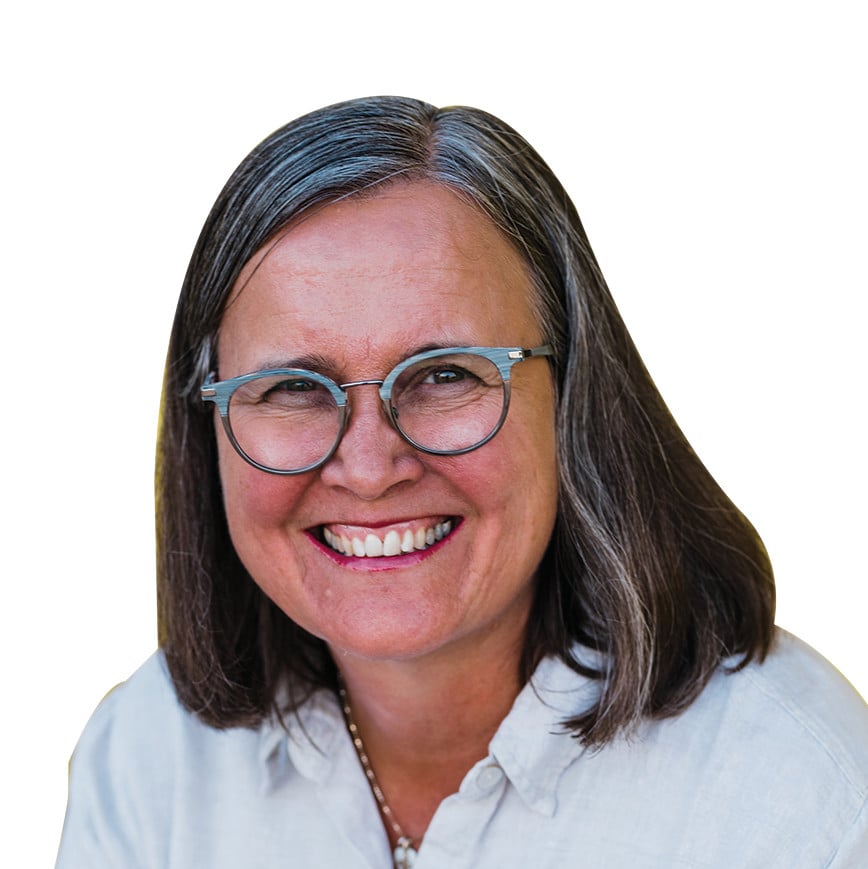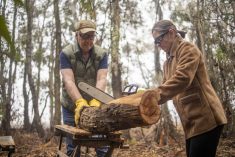It often happens at my succession communication seminars that a weary farmer approaches me with a problem. “Elaine, we don’t have a successor for our farm.” The look of worry and wear on their face makes me want to just sit and listen to their story. When I spoke in Biggar, Saskatchewan a few years ago, 30 per cent of my audience did not have a person in place to take over the farm.
Enter successionmatching.com the website you need to explore. Alison Anderson was working for Community Futures when she realized the great need for a system of finding successors for all types of businesses, so in 2012 she launched Succession Matching, and Industry Canada has named the website as the place to buy a business online.
Read Also

Maintain motion to ease joint stiffness
As we proceed into colder, drier temperatures, it’s common to hear reports of more joint stiffness and pain, athletic therapist Kathlyn Hossack writes.
The matching questions are weighed based on experience, and the timeline expected for a sale. They really push mentorship of the existing business which results in 70 per cent of the businesses still being a success five years later. Many farm families want the years of equity that they have built up to continue with a strong legacy, and succession matching has put programs in place to ensure that legacy is strong.
So far the website process has matched five farms, which is a good start. Since I have learned of this resource I have connected several farm advisers to Anderson to take advantage of the myriad of educational webinars that are helpful to add to the different skill sets needed for a successful transition. The transition timeline can be two to seven years, as the expert advisers want all the due diligence to take place. This happens in the form of a checklist so that introductions can be made to resource teams.
Many corporations access the succession matching site via regional Community Futures offices which can provide bridge financing tools and other financing programs.
Privacy is a key code of conduct during the matching process, and Anderson can set up what she calls “ghosts” to invite one match to look at your business profile.
Here’s a sample of one of Anderson’s blog posts:
Here are four of the biggest market challenges and opportunities our members are experiencing:
Less family transitions
We are seeing fewer second- or third-generation family members wanting to move back home and take over the family farm. In combination with an aging population, this is the main reason why people are increasingly looking to sell to a third party. But knowing they have to widen their market beyond family members, sellers generally have a willingness to train and mentor a buyer. In doing so, their buyer in many respects becomes a new addition to the family.
Access to capital
Straight, traditional financing on land and equipment is too large of an entry barrier for new farmers. This poses a dilemma for retiring farmers; they need to pull money out of the farm to fund retirement, but subsequent generations often don’t have enough cash to pay the fair market value of the farm. And lending institutions often shy away from extending enough debt to cover the purchase price for a farmer just starting out. Buyers and sellers usually reach a purchase agreement involving some combination of cash, debt and possibly the vendor taking back a mortgage on a portion of the purchase price.
Importance of legacy
Community is important to producers. There is a large difference in “being bought out” versus “selling out.” Finding a family that wants to live in and contribute to the community is important to many sellers. But as new relationships are built during the training and mentoring phase, finding the right buyer can provide rebirth for the farm. The right buyer can take the farm to the next level and be a positive contributor to the community for many years to come.
Willingness to mentor
No one knows the ground better than the person who farmed it for the last 30 or 40 years. All of the farm owners on our site are willing to stay on and mentor the buyer for a period of time. And while someone who grew up on a farm might not have any desire to take it over, a buyer seeking a change of lifestyle often has a willingness to learn the industry that trumps his or her minimal experience. Sellers recognize a buyer with a desire to succeed is an important part of the transition process. On the other side, buyers value the mentoring process and see it as helping to minimize risk as a result of buying an existing operation versus starting from scratch.
Over the past few months, I (Alison) have had the opportunity to get to know one particular family that raises and shows purebred cattle in Alberta. This is a perfect opportunity for someone who cares about sustainable farming and wants a low-cost entry point to the industry. This family is willing to have the potential buyer live on their land rent free. But more than that, the right person will have a chance to learn from many years’ experience and obtain valuable knowledge that can’t be found in a book or shown on a financial statement. What better way to learn a business than working within an existing one, being active within the operations and having the guidance and mentorship needed to succeed.
So now you have a new resource to access to figure out your farm transition plan. I hope you will explore successionmatching.com and sign up for their webinars to build your skill set as you seek to create a lasting legacy for your farm.
Another way to find a successor is to start mentoring relationships with the young farmers in your area who don’t have parents to help them get started. This has been explored in a Country Guide article called “Not related.”
I also encourage you to ask for what you need, and network with ag-based groups to let others know your skill set, and your desire. The farmers in Biggar who were seeking a successor started those conversations at our seminar. So get out in the community, seek out the website of succession matching, and work at making your dream an actionable goal. All things are possible when you have desire, drive, and discipline to communicate your succession vision.
















